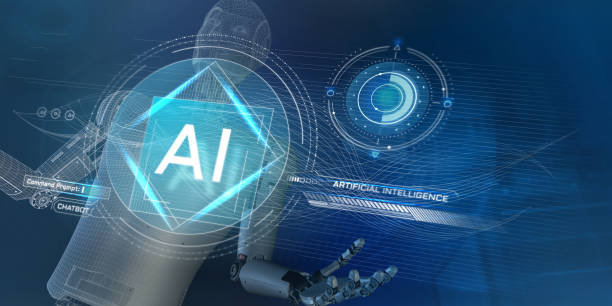Introducing Mobile AI Applications and Their Novel Uses
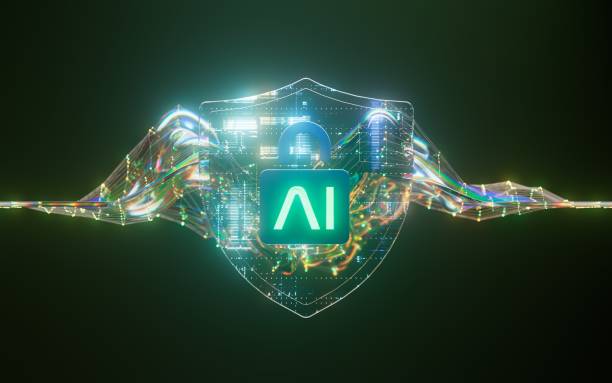
Today, #mobile_AI_applications have become an indispensable part of our daily lives.
This advanced technology, once found only in science fiction, is now accessible in everyone’s pocket.
From smart voice assistants to applications that convert images to text or even aid in disease diagnosis, the scope of this amazing artificial intelligence is vast.
Mobile AI applications have the ability to process and analyze vast amounts of data, allowing them to identify patterns, make predictions, and even make decisions.
These capabilities have made our lives easier and more efficient in countless ways.
The goal of this article is to provide an explanatory and somewhat educational perspective to familiarize you with the concept of these applications and how they are changing our world.
These smart applications not only automate simple tasks but also help us perform more complex ones.
For instance, applications that work with Natural Language Processing can translate texts, summarize content, or even write emails for you.
These advancements are the result of years of research and development in the field of Machine Learning and neural networks, which are now small and efficient enough to run on mobile devices.
Understanding how these applications work and what impact they have on the future is of paramount importance and helps us make the most of this emerging technology.
This is a real revolution in how we interact with technology.
Does your current website convert visitors into customers or drive them away? Solve this problem forever with professional corporate website design by Rasawweb!
✅ Build credibility and powerful branding
✅ Attract target customers and increase sales
⚡ Get free consultation now!
Evolution of Artificial Intelligence in Mobile Platforms

#The_evolution_of_AI in mobile devices is a compelling news and analytical story of significant technological advancements.
Initially, Artificial Intelligence was predominantly reliant on powerful servers and cloud computing.
Complex processing was carried out in data centers, and the results were sent to mobile devices.
However, with the advancement of mobile hardware, particularly the increased power of processors (CPU and GPU) and dedicated AI chips (NPU), it became possible for a significant portion of AI processing to be performed locally on the device itself.
This change drastically increased responsiveness and reduced the need for a constant internet connection.
Mobile AI applications can now perform tasks such as face recognition, real-time image processing, and even small language models without needing to send data to a server.
This transfer of processing power to the device itself has not only improved performance but also somewhat alleviated data privacy concerns.
These advancements have paved the way for a new generation of mobile AI applications that offer a much smoother and more personalized user experience.
For example, voice assistants can now process your commands faster and more accurately because a large part of speech analysis is done on the phone itself.
This evolutionary trend continues, and we expect to see even smarter capabilities on mobile devices in the near future.
Main Categories of Mobile AI Applications and Prominent Examples

To better understand the wide range of #AI_applications in smartphones, it is essential to delve into their specialized categorization.
These mobile AI applications can be divided into several categories based on their functionality and main purpose, each offering guidance for their optimal use.
From productivity tools to entertaining and educational applications, AI has left its mark in every field.
Below are some of the most important categories and prominent examples.
The first category includes productivity tools, such as smart voice assistants (e.g., Google Assistant, Siri) that automate daily tasks, or smart note-taking applications that convert handwriting to text.
The second category consists of creativity and editing applications that use AI to enhance photos (e.g., Lensa, FaceApp) or create video content.
The third category includes health and wellness applications that can analyze sleep patterns, provide exercise recommendations, or even monitor disease symptoms.
The fourth category comprises financial applications that use AI to help with budget management, market trend prediction, and investment recommendations.
The fifth category, educational applications, play a role in language learning, coding education, or enhancing various skills.
Finally, entertainment applications, such as games with advanced AI or content recommendation platforms (like TikTok) that identify user interests using AI algorithms.
Each of these categories demonstrates the immense potential of AI in mobile and has elevated the user experience to a new level.
Table 1: Categories and Examples of Mobile AI Applications
| Main Category | Prominent Examples | AI Application |
|---|---|---|
| Personal Assistants | Siri, Google Assistant, Bixby | Natural Language Processing, Speech Recognition, Task Management |
| Image and Video Editing | Lensa, FaceApp, Remini | Photo quality improvement, Style transfer, Object removal |
| Health and Wellness | Sleep Cycle, Calm, MyFitnessPal | Sleep pattern analysis, Personalized recommendations |
| Education and Learning | Duolingo, Elevate, PhotoMath | Adaptive learning, Automatic correction, Problem-solving |
| Finance and Banking | Mint, Acorns | Budget management, Financial forecasting, Investment recommendations |
Challenges and Opportunities in Developing Mobile AI Applications

The development of #mobile_AI_applications faces a set of challenges and opportunities that are both analytical and intriguing.
One of the biggest challenges is the #hardware_limitations of mobile devices.
Unlike cloud servers with unlimited processing power, smartphones have limited battery and processing capabilities.
Running complex AI models on these devices requires very precise optimization to minimize power consumption and maintain fast performance.
Model optimization for execution in low-power environments is one of the most important areas of research and development in this field.
Another challenge is #data_volume and privacy.
Many mobile AI applications require access to large amounts of user data for optimal performance.
This can raise concerns about how this information is collected, stored, and used.
Developers must ensure that data is managed securely and complies with privacy regulations.
However, these very challenges also create unique opportunities.
The first opportunity is the expansion of access to AI technologies for billions of mobile users worldwide.
This can lead to #widespread_innovation in various sectors, including education, health, and communication.
The second opportunity is the creation of personalized user experiences that were previously impossible.
Mobile AI applications can offer more precise and relevant suggestions by learning from user usage patterns.
Furthermore, the emergence of mobile AI development platforms (such as ML Kit from Google and Core ML from Apple) has helped developers easily integrate AI models into their applications, which itself is a great opportunity for the expansion of AI applications in mobile.
Are you worried about losing customers because you don’t have a professional e-commerce website?
Forget these worries with e-commerce website design by Rasawweb!
✅ Significant increase in sales and visitor-to-customer conversion rate
✅ Professional and user-friendly design that builds customer trust
⚡ Get free consultation from Rasawweb
The Role of Artificial Intelligence in Enhancing Mobile Application User Experience

#Artificial_Intelligence plays a pivotal and specialized role in enhancing the user experience (UX) of mobile applications, providing a comprehensive explanation of this vital impact.
One of the most important aspects is personalizing content and services.
Mobile AI applications can provide relevant content, product suggestions, or tailored services by analyzing user behavior, interests, and preferences.
This makes users feel that the application is designed specifically for them, leading to increased satisfaction and loyalty.
Smart voice assistants like Siri and Google Assistant are another prime example.
Using Natural Language Processing, they allow users to interact with their phones by voice, send messages, make calls, or search for information, which is especially useful for people with disabilities or while driving.
Furthermore, AI plays a role in enhancing search capabilities, image recognition, and even automatic text correction.
Features like #visual_search in Google Lens or word suggestions in keyboards are all based on AI algorithms.
Computer Vision is also used in mobile AI applications for tasks such as unlocking phones with face recognition, augmented reality (AR) filters in Instagram and Snapchat, and scanning documents and converting them to text (OCR).
These technologies not only make the user experience faster and easier but also increasingly intuitive and intelligent, allowing applications to anticipate user needs and provide proactive solutions even before the user expresses them.
Privacy and Data Security in Mobile AI Applications
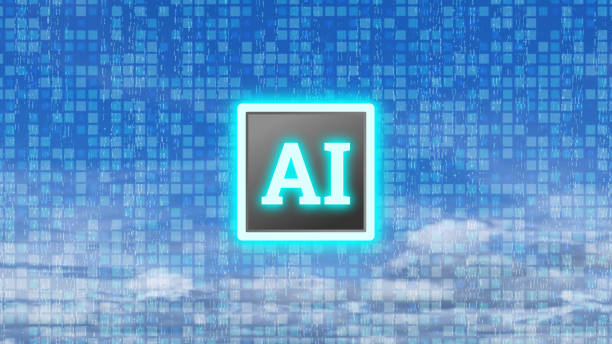
The topic of #privacy and #data_security concerning #mobile_AI_applications is one of the most intriguing and, at the same time, important news items.
Since these applications often require vast amounts of users’ personal data to provide smart services, concerns about how this information is collected, stored, processed, and used have increased.
Data such as location, usage habits, biometric information, and even conversation content can be collected by these applications, which, if not properly managed, can lead to misuse or privacy breaches.
To address this issue, developers and companies are required to adhere to strict standards and regulations such as GDPR in Europe or CCPA in California.
These regulations give users greater control over their personal data and compel companies to be transparent about their data collection practices.
Data encryption, the use of #Federated_Learning, which allows AI models to be trained without raw data leaving the device, and On-device Processing are among the technical solutions that help increase security and privacy in mobile AI applications.
However, #user_education about app privacy settings and awareness of potential risks is also crucial.
Users should actively review app access permissions and grant access to sensitive information only to trusted applications.
The balance between providing smart services and maintaining privacy is an ongoing challenge that requires cooperation between developers, regulators, and users themselves to ensure a secure and reliable future for mobile AI.
Education and Learning with Mobile AI Applications

The role of #mobile_AI_applications in the field of education and learning has become increasingly prominent.
These applications have high potential to provide personalized educational content and guidance, transforming the learning experience for individuals of all ages.
From language learning applications to specialized platforms for teaching complex sciences, AI is redefining how knowledge is acquired.
The ability of these applications to #adapt_to_each_individual’s_learning_style and provide instant feedback has turned them into powerful tools.
For example, applications like Duolingo use AI to #personalize_the_learning_path and adjust exercise difficulty based on user progress.
This approach ensures that users are always at a challenging but manageable level.
Mobile AI applications are also effective in solving math problems (like PhotoMath, which provides step-by-step solutions by scanning problems) or even in correcting grammar and spelling in text.
These tools, using Natural Language Processing and Computer Vision, facilitate and make learning more accessible.
Furthermore, AI in educational applications can help with #automated_content_generation, #assessing_student_progress, and even #identifying_their_areas_of_weakness.
These capabilities allow teachers and instructors to focus on providing deeper content and more human interaction, while more repetitive tasks are handled by AI.
Given the increasing demand for #continuous_education and #lifelong_learning, mobile AI applications will play a vital role in providing easy and efficient access to new knowledge and skills.
This is a unique opportunity to democratize education and bridge educational gaps worldwide.
Table 2: Examples of Educational Applications with Artificial Intelligence
| App Name | Educational Field | How AI is Used |
|---|---|---|
| Duolingo | Language Learning | Adaptive learning path, Pronunciation correction with speech recognition |
| PhotoMath | Mathematics | Handwriting recognition, Step-by-step solution provision |
| Grammarly Keyboard | English Writing | Grammar and spelling correction, Suggesting writing style improvements |
| Khan Academy Kids | Preschool Children’s Education | Providing personalized activities based on child’s progress |
| Coursera/edX (some courses) | Specialized Online Learning | Recommending relevant courses, Automatic exercise evaluation |
Future Research of Artificial Intelligence in Mobile Applications
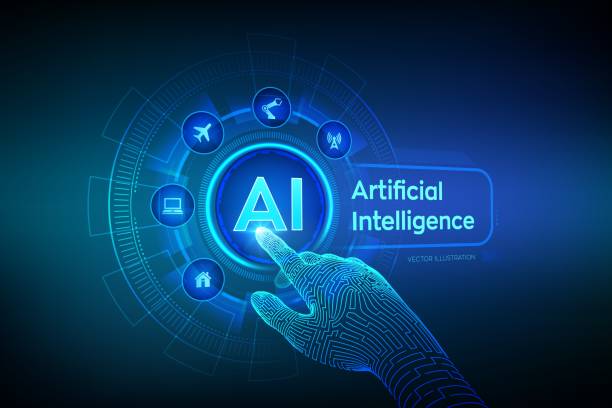
The future of #artificial_intelligence in #mobile_applications presents an exciting and somewhat entertaining outlook that is analytically reviewable.
With the ever-increasing advancement of mobile hardware and the development of AI algorithms, it can be expected that mobile AI applications will gain significantly more capabilities in the future.
One of the main trends is the #expansion_of_on-device_processing.
This means running more complex AI models locally on the phone, which leads to reduced reliance on the internet, increased speed, and improved privacy.
Furthermore, the convergence of AI with #Augmented_Reality (AR) and #Virtual_Reality (VR) in mobile will bring about new capabilities.
Imagine an application that can display real-time information about your surroundings (e.g., names of plants, history of buildings, or instant translation of signs) using AR and AI.
This combination of technologies can elevate user interaction experience to an unprecedented level.
Ambient AI is another future trend where AI works discreetly and continuously in the background, anticipating and fulfilling user needs without direct interaction.
Also, it can be expected that mobile AI applications will play a more significant role in detecting and #predicting_user_moods and providing mental health recommendations.
Other future outlooks include extreme personalization and #automated_content_generation based on individual taste.
These advancements promise us a smarter and more connected world, where our phones are not just communication tools, but smart and predictive assistants that will transform our lives in a deeper and more personal way than ever before.
Do you dream of a thriving online store but don’t know where to start?
Rasawweb is your comprehensive e-commerce website design solution.
✅ Attractive and user-friendly design
✅ Increased sales and revenue⚡ Get free consultation
Key Tips for Choosing and Using the Best Mobile AI Applications
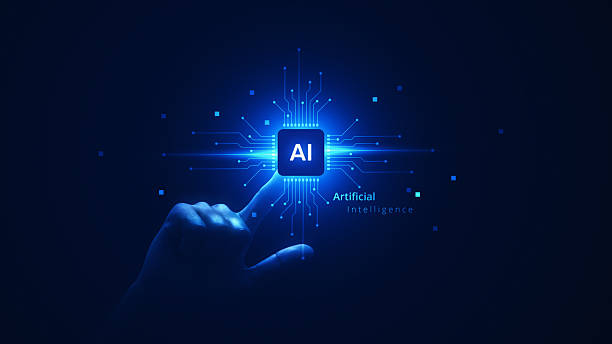
Choosing and optimally using #mobile_AI_applications requires awareness of key tips and specialized guidance.
Given the incredible variety of these applications in the market, it is important to be able to identify options that match your needs and priorities.
The first step is to #determine_your_needs.
Are you looking for a productivity tool, or an application for language learning, photo editing, or entertainment? Each of these categories offers different options.
The second tip is to check the credibility and security of the application.
Since many mobile AI applications access sensitive data, ensure that the developer is reputable and has transparent privacy policies.
Reading user reviews and ratings in app stores (such as Google Play Store or Apple App Store) can provide useful information in this regard.
Also, pay attention to the #requested_permissions of the application and only approve those that are essential for the app’s functionality.
The third tip is to pay attention to efficiency and performance.
Does the application work quickly and smoothly? Is its user interface intuitive and user-friendly? Some mobile AI applications may consume significant battery and processor resources from your phone, so optimization and smooth performance are of high importance.
Finally, pay attention to the application’s support and regular updates.
AI applications are constantly being improved and developed, and regular updates indicate the developer’s commitment to enhancing the user experience and adding new features.
These tips will help you make the best choice.
Conclusion and Final Outlook of Mobile AI Applications
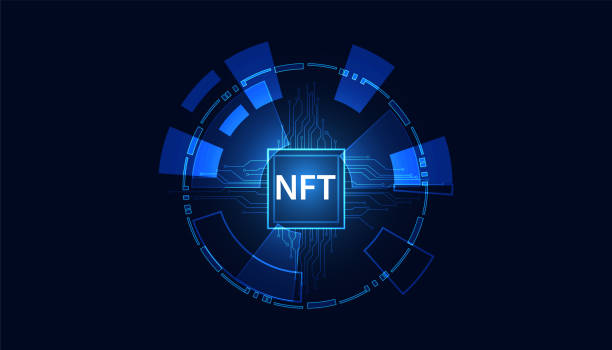
In this article, we comprehensively examined #mobile_AI_applications and analyzed various dimensions of this novel technology from explanatory and news perspectives.
From introducing initial applications to its evolution on mobile platforms, main categories, challenges and opportunities, its role in improving user experience, privacy and data security issues, and educational applications, an attempt was made to provide a complete picture of the power and impact of these applications.
Mobile AI applications are no longer just a futuristic technology; they have become an indispensable part of our present.
The final outlook for this field is very bright and full of countless potentials.
With continuous advancements in hardware, algorithms, and computational power, mobile AI applications will become smarter, more efficient, and more accessible.
A future where our smartphones are not just communication tools but powerful and personalized assistants in all aspects of our lives is not far-fetched.
These assistants will be able to actively anticipate our needs, automate tasks, and help us with more complex decisions.
However, #responsible_development and a focus on ethical principles and privacy are crucial in this path.
Ensuring that these technologies are used for the benefit of all humanity and that individual rights are protected is of paramount importance.
Ultimately, mobile AI applications are set to pave the way for a new era of human-technology interaction, an era where AI not only makes our lives easier but also helps us achieve our full potential and build a smarter, more efficient world.
Frequently Asked Questions
| No. | Question | Answer |
|---|---|---|
| 1 | What is a mobile AI application? | A mobile AI application is a program that utilizes artificial intelligence capabilities (such as machine learning, natural language processing, computer vision) to provide smarter and more automated experiences on mobile devices. |
| 2 | Why is AI important in mobile applications? | Its importance stems from increased efficiency, personalized user experience, task automation, improved decision-making, and the provision of innovative features like facial recognition or voice assistants. |
| 3 | What are some examples of mobile applications with AI? | Voice assistants (e.g., Siri, Google Assistant), navigation apps with real-time traffic (Google Maps), image filters (Snapchat, Instagram), language translation apps, and facial recognition applications. |
| 4 | What challenges exist in developing mobile AI applications? | Hardware limitations of mobile devices (processing power, battery), the need for large and high-quality data, user privacy protection, and the complexity of implementing AI models. |
| 5 | What is the role of machine learning in these applications? | Machine learning allows the application to learn from data, identify patterns, and improve its performance over time, such as in product recommendation systems or speech recognition. |
| 6 | Do mobile AI applications require an internet connection? | Many advanced AI features require an internet connection and cloud processing, but some lighter models can also work “on-device” (without internet). |
| 7 | How does AI help improve user experience in mobile? | By personalizing content, anticipating user needs, automating repetitive tasks, and providing more natural user interfaces like voice commands. |
| 8 | What is the difference between cloud AI and on-device AI in mobile? | Cloud AI uses powerful servers for processing (requires internet), whereas on-device AI performs processing directly on the phone itself (no internet required, but with processing limitations). |
| 9 | What will be the future of mobile AI applications? | We expect to see increased personalization capabilities, deeper integration with phone sensors, the development of smarter assistants, and advancements in on-device processing. |
| 10 | Which frameworks are popular for AI development in mobile? | TensorFlow Lite (for Android and iOS), Core ML (for iOS), PyTorch Mobile are among the popular frameworks for implementing AI models in mobile applications. |
And other services of Rasawweb Advertising Agency in the field of advertising
Smart Custom Software: A fast and efficient solution for increasing click-through rates, focusing on the use of real data.
Smart Conversion Rate Optimization: A combination of creativity and technology to increase website traffic through intelligent data analysis.
Smart Content Strategy: An innovative platform for improving customer behavior analysis with marketing automation.
Smart Sponsored Content (Reportage): An innovative platform for improving online growth through intelligent data analysis.
Smart Social Media: A novel service for increasing digital branding through intelligent data analysis.
And over hundreds of other services in internet advertising, advertising consultation, and organizational solutions
Internet Advertising | Advertising Strategy | Sponsored Articles
Sources
Mobile AI: The Future in Your Hands
Review of Mobile AI Applications in Iran
The Role of Artificial Intelligence in Smartphone Technology
Challenges and Opportunities of Mobile AI
🚀 For your business to thrive in the digital world, Rasawweb Afarin, with its comprehensive and specialized services including custom website design, SEO, and content marketing, paves your path to growth. Experience a powerful and targeted online presence with us.
📍 Tehran, Mirdamad Street, next to Bank Markazi, Southern Kazeroon Alley, Ramin Alley, No. 6



